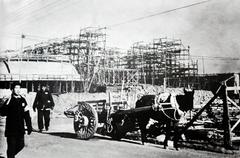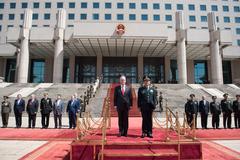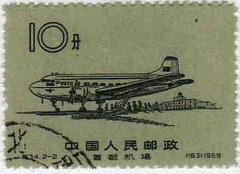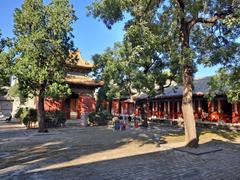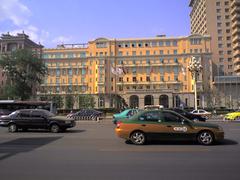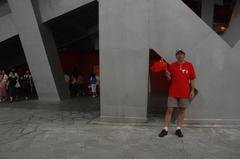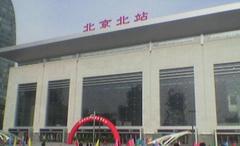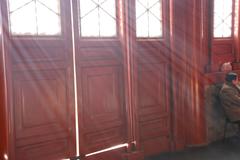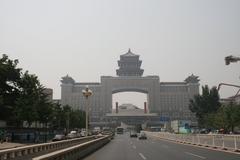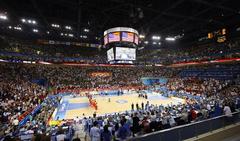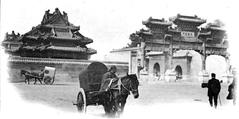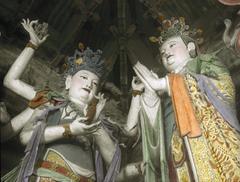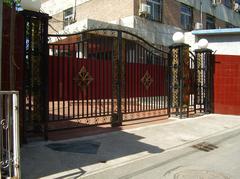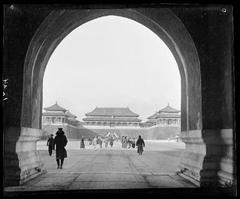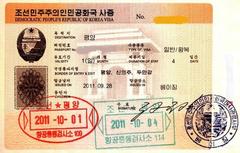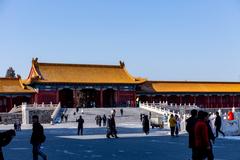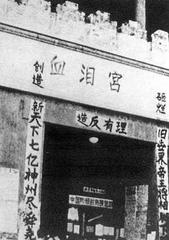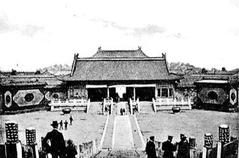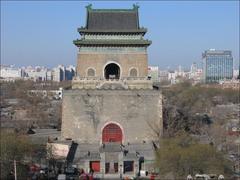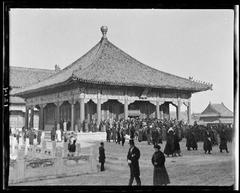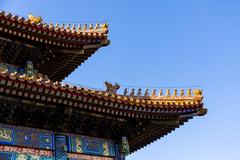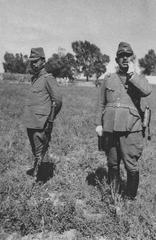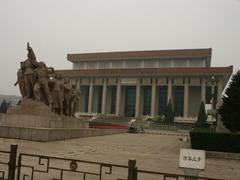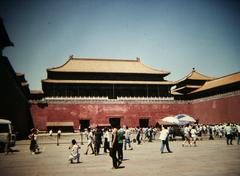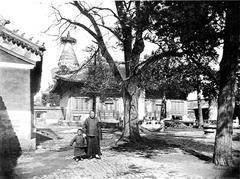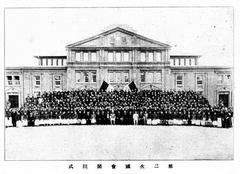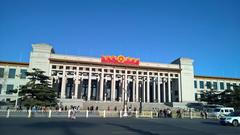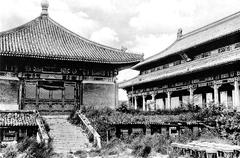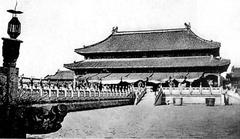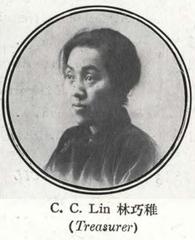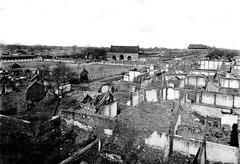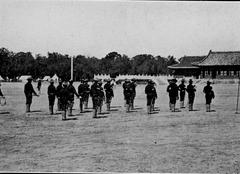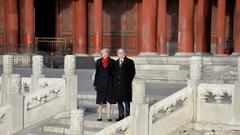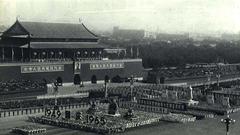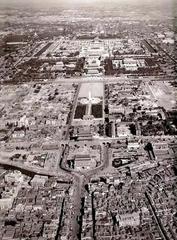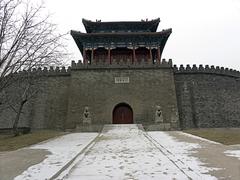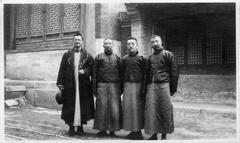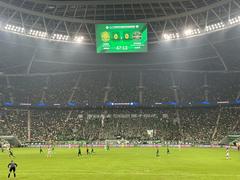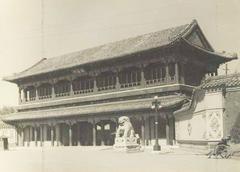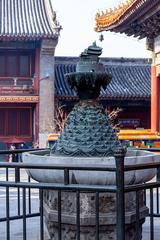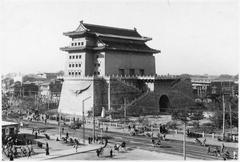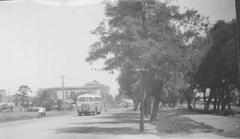Bai Yihua Martyrs Memorial Hall: Visiting Hours, Tickets, and In-Depth Guide to Beijing’s Revolutionary Heritage
Date: 04/07/2025
Introduction
The Bai Yihua Martyrs Memorial Hall in Beijing is a vital landmark commemorating the heroic life and enduring legacy of Bai Yihua—one of China’s most venerated resistance fighters during the War of Resistance against Japanese Aggression (1937–1945). Located in the scenic Miyun District, near the tranquil Miyun Reservoir, the memorial hall stands as a center for patriotic education, cultural remembrance, and red tourism. This comprehensive guide provides detailed information on the memorial’s historical significance, visiting hours, ticketing, architectural symbolism, educational initiatives, accessibility, and practical travel tips to enrich your exploration of Beijing’s revolutionary sites (China Daily: Bai Yihua; Xinhua: Bai Yihua Martyr; Visit Beijing).
Table of Contents
- Historical Context and Bai Yihua’s Legacy
- Establishment and Evolution of the Memorial Hall
- Architectural Symbolism and Exhibition Design
- Role in Patriotic Education and Red Tourism
- Visitor Information: Hours, Tickets, and Accessibility
- Location and How to Get There
- Site Facilities and Practical Tips
- Nearby Attractions and Suggested Itineraries
- Special Events and Photography
- Frequently Asked Questions (FAQ)
- Conclusion and Recommendations
- References and Further Reading
Historical Context and Bai Yihua’s Legacy
The Tumultuous Era
The early 20th century in China was marked by political upheaval, the end of imperial rule, and a surge in revolutionary activity. The 1919 May Fourth Movement ignited widespread calls for modernization and resistance to foreign domination, making Beijing a focal point of national transformation (Britannica: May Fourth Movement). During this era, the Communist Party, Nationalist forces, and local warlords vied for control, culminating in the foundation of the People’s Republic of China in 1949 (History.com: Chinese Civil War).
Bai Yihua: Revolutionary Hero
Bai Yihua (1916–1941), born in Hebei Province, joined the Communist Party as a youth and swiftly became a key leader in the anti-Japanese resistance. As commander of the Tenth Infantry Regiment of the Jin-Cha-Ji Eighth Route Army and founder of the Fengluanmi Guerrilla Base, Bai orchestrated sabotage missions and organized local resistance, greatly disrupting Japanese operations in northern China. Captured and executed at the age of 25, Bai Yihua’s sacrifice epitomizes the spirit of resistance and the struggle for China’s sovereignty (China Daily: Bai Yihua; Xinhua: Bai Yihua Martyr).
Establishment and Evolution of the Memorial Hall
Origins and Construction
The Bai Yihua Martyrs Memorial Hall was constructed in the early 1950s on the site of Bai’s martyrdom in Hebei Village, Shicheng Town, Miyun District. Its solemn architecture and use of local materials create an atmosphere of reverence, while its continued expansion, notably the addition of the Miyun Anti-Japanese Exhibition Hall in 2006, reflects ongoing commitment to patriotic education (Beijing Municipal Administration of Cultural Heritage; chinawiki.net).
National Recognition and Educational Mission
In 2006, the site was officially designated as a “Beijing Patriotism Education Base,” cementing its status as a cornerstone of Beijing’s and China’s educational and cultural landscape (chinawiki.net). Supported by significant governmental investment, the memorial now integrates multimedia exhibitions, guided tours, and school partnerships to foster historical awareness and civic values (visitbeijing.com.cn).
Architectural Symbolism and Exhibition Design
Monument Area and Memorial Features
Spanning approximately 3,000 square meters, the memorial complex is entered through a 6-meter-high stone archway inscribed with “Eternal Glory to Martyr Bai Yihua.” A solemn stone-paved path leads to a granite bust of Bai Yihua, set on a five-meter-square platform and surrounded by cypress trees—symbols of purity and eternal remembrance. Nearby, marble steles bear inscriptions by General Xiao Ke and a biography by Bai’s comrade Wang Kang, personalizing the larger historical narrative (visitbeijing.com.cn; chinawiki.net).
Exhibition Halls and Multimedia Integration
The Miyun Anti-Japanese Exhibition Hall, completed in 2006, is architecturally distinguished by its Eighth Route Army cap-shaped roof. Inside, four main exhibition areas present 43 historical photographs, artifacts, and a video hall featuring documentary films. The displays chronicle Bai Yihua’s life, the Miyun resistance, and the broader context of the Anti-Japanese War, employing multimedia and interactive elements to deepen visitor engagement (chinawiki.net).
Sculptural and Landscape Elements
A special highlight is the Heroic Mother Deng Yufen Sculpture Theme Square, featuring a 5-meter granite statue representing both familial sacrifice and revolutionary spirit. The landscaping—cypress and pine trees, symbolic sculptures, and elements referencing the Great Wall—enhances the contemplative environment and reinforces the memorial’s educational mission.
Role in Patriotic Education and Red Tourism
Institutional Support and Educational Programming
Recognized as a core “Beijing Patriotism Education Base,” the memorial hall serves as a venue for school programs, Party member training, and public commemorations, especially on Martyrs’ Day (September 30), Party’s Day (July 1), and Qingming Festival. Activities include wreath-laying ceremonies, guided tours, and lectures, fostering intergenerational transmission of revolutionary values (chinawiki.net; visitbeijing.com.cn).
Integration with Red Tourism
Bai Yihua Martyrs Memorial Hall is a prominent site in Beijing’s red tourism network, drawing domestic and international visitors interested in China’s revolutionary history. Its inclusion in official tourism itineraries and educational campaigns underscores its symbolic and educational importance (chinadaily.com.cn).
Visitor Information: Hours, Tickets, and Accessibility
- Opening Hours: Tuesday to Sunday, 9:00 AM – 5:00 PM; closed on Mondays (unless public holiday)
- Admission: Free for all visitors
- Guided Tours: Available upon request (recommended for groups and school visits)
- Accessibility: Wheelchair-accessible entrances, ramps, and restrooms. Assistance is available for visitors with special needs.
Tip: Confirm the latest opening hours and special events on the official Beijing Municipal Administration of Cultural Heritage website.
Location and How to Get There
- Address: Hebei Village, Shicheng Town, Miyun District, Beijing
- By Car: Approximately 90 minutes from downtown Beijing via Jingcheng Expressway
- By Public Transport: Take Bus 980 from Miyun town center to Hebei Village stop, then a short walk to the memorial
- By Subway: Take Line X to [Nearest Station], then about a 10-minute walk
Suggested Visual: Map with marked route from Beijing city center to the memorial, alt text: “Route to Bai Yihua Martyrs Memorial Hall in Miyun District.”
Site Facilities and Practical Tips
- Information Desk: Offers brochures (primarily Chinese, limited English)
- Restrooms: Clean facilities near entrance
- Seating: Shaded benches and rest areas throughout the grounds
- Accessibility: Wide doorways, ramps, and accessible exhibition spaces
- Gift Shop: Books, postcards, and commemorative items available
- Food & Drink: No on-site café; vending machines for water and snacks. Local eateries are within walking distance.
- Photography: Non-flash photography permitted in most areas; flash and tripods may be restricted.
Nearby Attractions and Suggested Itineraries
- Miyun Reservoir Scenic Area: Explore the “Pearl of North China”
- Simatai Great Wall: Approximately 30 km away for a combined history and nature itinerary
- Other Memorials: Memorial Hall of the Chinese People’s Anti-Japanese War, Beijing Revolutionary Museum
Special Events and Photography
- Commemorative Ceremonies: Held on Martyrs’ Day, Party’s Day, and other national holidays
- Photography Tips: Best photo spots include the archway, Bai Yihua’s bust, Heroic Mother Deng Yufen sculpture, and panoramic views of the reservoir. Use descriptive alt text for images, e.g., “Stone archway at Bai Yihua Martyrs Memorial Hall entrance.”
Frequently Asked Questions (FAQ)
Q: What are the opening hours?
A: Tuesday to Sunday, 9:00 AM – 5:00 PM; closed Mondays (except public holidays).
Q: Is admission free?
A: Yes, entry is free for all visitors.
Q: Are guided tours available?
A: Yes, by prior arrangement; recommended for groups and in-depth learning.
Q: How accessible is the site?
A: Major exhibition areas are wheelchair accessible; some outdoor paths may be uneven.
Q: How do I get there by public transport?
A: Take Bus 980 from Miyun town center or use Line X subway to the nearest station, then walk or use ride-hailing.
Q: Can I take photos?
A: Non-flash photography is generally permitted unless otherwise posted.
Conclusion and Recommendations
The Bai Yihua Martyrs Memorial Hall offers a profound and enlightening look at China’s modern history and the sacrifices made for national independence. Its thoughtfully designed commemorative spaces, educational exhibits, and picturesque setting by Miyun Reservoir make it a must-visit for history enthusiasts, students, and travelers seeking a deeper understanding of Beijing’s revolutionary spirit.
Visitor Tips:
- Check for special commemorative events or guided tours for an enriched experience.
- Use translation apps or hire a bilingual guide for non-Chinese speakers.
- Combine your visit with nearby historical sites for a full appreciation of Beijing’s heritage.
- Download the Audiala app for the latest travel guides, virtual tours, and site updates.
For up-to-date information, visit the Beijing Municipal Administration of Cultural Heritage and Visit Beijing.
References and Further Reading
- May Fourth Movement, Britannica
- Chinese Civil War, History.com
- Bai Yihua, China Daily
- Bai Yihua Martyr, Xinhua
- Beijing Municipal Administration of Cultural Heritage
- Martyrs’ Day, China.org.cn
- Revolutionary Martyrs, People’s Daily
- Memorial Hall Activities, Beijing Daily
- Digital Memorials, China Daily
- Bai Yihua Memorial and Miyun Anti-Japanese Exhibition Hall, chinawiki.net
- Visit Beijing
- Beijing Historical Sites, Visit Beijing
